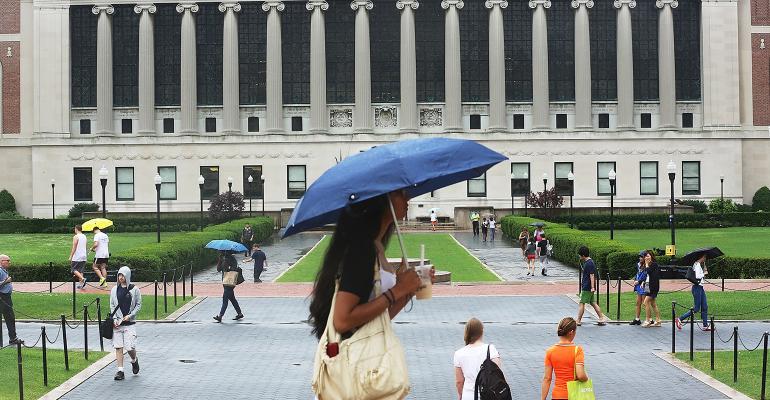Major universities across the United States are facing backlash amid their responses, or lack thereof, to the Hamas terrorist attack on Israel and the rampant antisemitism spreading across campuses. And it’s not just criticism they’re facing; an unprecedented number of major donors are pulling the plug on their funding in response to the discourse.
Major Donors Pull Donations
Following University of Pennsylvania’s failure to condemn antisemitism after the attacks, Billionaire Marc Rowan, who chairs the board of advisors at the university’s Wharton business school, has called for the resignation of the school’s president and chairman and a halt on donations. Ambassador Jon Huntsman, venture capitalists David Magerman and Jonathon Jacobson, and Ron Lauder, heir to the Estée Lauder cosmetics fortune, have already halted giving to the university.
Israeli billionaire Idan Ofer and Victoria’s Secret founder Leslie Wexner’s foundation have both announced they will be terminating their donations to Harvard University, after student groups signed a petition blaming Israel for the Hamas attack and the university’s lackluster response to condemn their actions.
Columbia University is also taking a hit, with billionaire Leon Cooperman announcing his decision to suspend funding, expressing his disgust over staff’s refusal to condemn the terrorist attacks and anti-Israel sentiment on campus.
Donor Intent
Donors have long been able to shape some of the terms of their charitable giving through donor intent. As Sara Barba and Joanne Florino eloquently put it in their October 2023 Trusts & Estates article, “Upholding and respecting donor intent encourages charitable giving. When donors know their intent will be honored, they develop confidence in the charitable sector and the organizations to which they give. However, if donors lack trust or confidence that their intent will be protected by those responsible for upholding it, some either won’t give or will give somewhere else.”
It’s no secret that large donations and endowments to universities sometimes come with the expectation of influence—for example, legal power by means of a seat on the board of trustees or political power via membership to alumni councils or advisory circles. In these situations, the president of a school must balance keeping donors happy with fulfilling the school’s own mission.
Jonathan G. Tidd, an attorney in Connecticut who represents many charitable organizations, said that while, in his experience, he’s seen donors make gifts in an attempt to wield influence, those sorts of deals are not universal practice. “Usually, a donor cares about the institution rather than their own personal gain and has a great deal of respect for the work of the charity they’re supporting. In fact, donors sometimes go out of their way to make gifts anonymous because they don’t want to appear to be seeking attention,” he explained.
How Much Influence?
In light of recent events, the question now at the forefront is just how much influence donors should have, if any. While some of the school leaders continue to argue that freedom of speech values are at the core of their mission and that they won’t give in to donor pressure, it’s hard to imagine that these leaders aren’t shaking in their boots as they watch the exodus of funding from some of their biggest donors.
“There are cases of true legal power when donations are conditioned on fulfilling certain requirements or else the donation must be returned or go to a different cause of charity,” said Avi Z. Kestenbaum, co-chair of Meltzer Lippe’s Trusts & Estates practice group in Mineola, N.Y. and New York City. “That’s not what is going on here, but in the future, I could see major donors putting more conditions and restrictions on their donations, not only as to how the funds are used, which is already common, but also with regard to the world view and belief system the university espouses and supports on its campus, in light of what we are now witnessing at some of these universities,” he continued.





